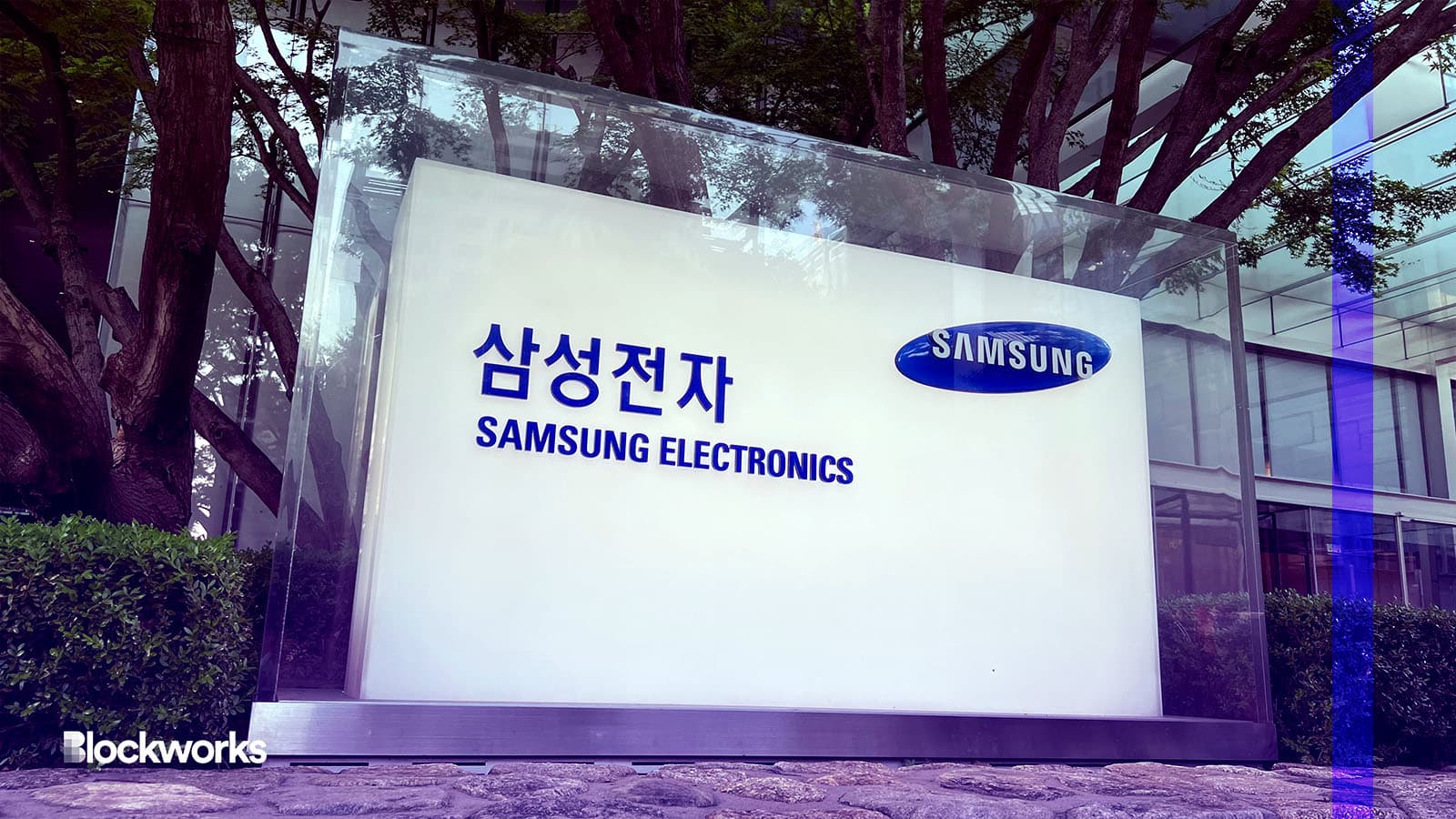Samsung and Bank of Korea Strengthen CBDC Partnership
Samsung and Korea’s central bank are partnering to advance research on offline CBDC technology, a move aimed at enhancing payment security

yllyso/Shutterstock, modified by Blockworks
Samsung Electronics and the Bank of Korea have joined forces to spearhead research and innovation in offline central bank digital currency (CBDC) technology.
The partnership seeks to eliminate internet dependency by ushering in a new era of seamless offline payments. Both entities will conduct joint research aimed at catalyzing the development of a CBDC ecosystem.
The memorandum of understanding was inked on Monday at Samsung’s headquarters south of Seoul, CBDC Insider reported.
Samsung’s foray into the Bank of Korea’s CBDC project began in a 2021 pilot program, co-managed by blockchain platform Ground X.
Since then, the tech giant has reportedly achieved a significant milestone with the successful development of offline CBDC technology; a short-range wireless technology called Near Field Communication (NFC) lets the devices of both sender and receiver talk to each other directly without an internet connection, South Korean tech outlet The Pickool reported.
Samsung’s phones and tablets include an Embedded Secure Element (eSE) chipset, where these CBDC transactions can be kept safe and secure. Blockworks has reached out to Samsung for comment.
In June 2020, the Bank of Korea established a legal advisory panel to examine potential regulatory challenges associated with the issuance of a CBDC.
In light of the growing global interest in CBDCs, the outcome of this collaborative research effort could serve as a virtual compass. The insights gained may shape future initiatives aimed at exploring and establishing cooperative pathways for the development of the global CBDC ecosystem.
Building on the cooperation’s outcomes, Samsung and the Bank of Korea expressed their intent to further explore collaborative opportunities for developing a CBDC ecosystem internationally.
The latest partnership focuses on enhancing security and minimizing threats in offline payments using Samsung Galaxy devices, the Pickool noted. It also aims to guarantee a resilient payment system during situations where network connectivity is compromised.
Choi Won-Joon, executive vice president and head of R&D at Samsung Mobile, reportedly said the effort will enable Samsung’s “significant contribution to the development of offline CBDC technology in Korea and globally.”
Get the news in your inbox. Explore Blockworks newsletters:
- The Breakdown: Decoding crypto and the markets. Daily.
- 0xResearch: Alpha in your inbox. Think like an analyst.






